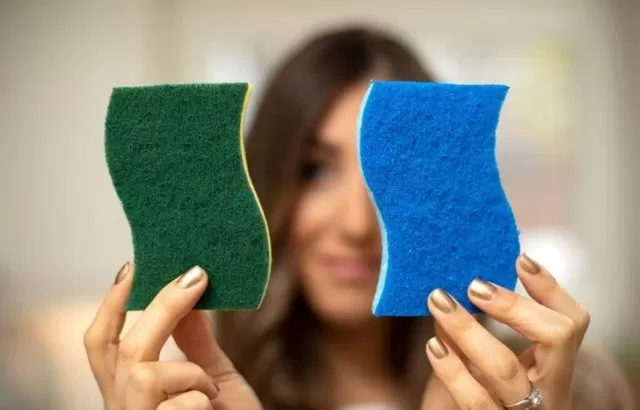Spring Cleaning Myths: Debunked or Validated by Experts. It’s time to unveil the truth about some of the most commonly used cleaning and pest-control techniques – many of which, as it turns out, are ineffective. Despite their widespread popularity, these methods often fall short of delivering the desired results. Let’s explore the facts and debunk the myths surrounding these techniques, allowing you to make informed decisions for a cleaner and pest-free environment.

Revamp Your Spring Cleaning Regimen: Debunking Myths and Unveiling New Tactics.
With the arrival of spring, it’s time to bid farewell to the cozy hibernation of winter and embrace a season of revitalization.
Say goodbye to heavy blankets, stow away those bulky boots and coats, and let the dust bunnies and cobwebs that have accumulated in the nooks and crannies of your home meet their match with a trusty vacuum attachment.
But as you embark on your spring cleaning journey, don’t be swayed by common misconceptions.
Renowned cleaning expert Alice Shaw-Beckett from Cleanipedia is here to challenge traditional beliefs and introduce you to fresh perspectives on seasonal cleaning and pest control. Discover which outdated tactics you should discard and which innovative approaches you should adopt this spring.
Debunking the Spider-Repelling Power of Chestnuts: Separating Fact from Fiction.
Myth: Guarding Your Home with Chestnuts Keeps Spiders at Bay.
Have you heard the age-old advice of placing chestnuts on windowsills and in the corners of rooms to ward off spiders? It turns out that this belief lacks scientific evidence, as highlighted by cleaning expert Alice Shaw-Beckett.
Shaw-Beckett explains, “The notion behind this myth is that chestnuts possess a chemical that spiders find repulsive.
However, there is no scientific proof to support this claim. Instead, consider using lemon, which has been scientifically proven to repel spiders.
Simply rub a raw lemon wedge around the potential entry points in your house, or create a mixture of lemon juice and water to spritz on those areas. Additionally, don’t forget the effectiveness of removing existing spiderwebs.
“.
Debunking the Dusting Delusion: Unveiling the Truth about Feather Dusters

Myth: Feather Dusters Eliminate Dust Effectively.
The common belief that feather dusters effectively remove dust from surfaces is not entirely accurate, according to cleaning expert Alice Shaw-Beckett.
While this statement holds true for ostrich feather dusters, which possess an inherent electric charge that attracts and traps dust particles, the same cannot be said for other types of feather dusters.
Shaw-Beckett explains, “Mainstream feather dusters, apart from those made of ostrich feathers, tend to merely displace dust rather than absorb it.
They essentially move the dust around, making the process of dusting futile. Instead, it is advisable to choose alternative tools such as reusable damp cloths or microfiber dusters.
“.
Dispelling the Garlic Shield: Separating Fact from Fiction
Myth: Garlic Consumption Repels Mosquito Bites.
Wouldn’t it be wonderful if warding off mosquito bites were as simple as incorporating garlic into our diets? Unfortunately, according to cleaning expert Alice Shaw-Beckett, this belief lacks credibility.
Shaw-Beckett explains, “While garlic may have a pungent odor that many assume deters mosquitoes, there is no scientific evidence to support this claim.
In reality, genetic factors, such as blood type, play a more significant role in attracting mosquitoes. When it comes to effective mosquito repellents, proven methods include utilizing smoke, giving you yet another reason to enjoy a barbecue!”.
Unveiling the Truth: Cucumber Peel\’s Limited Effectiveness Against Ants

Myth: Bitter Cucumber Peel as an Ant Repellent.
The belief that bitter cucumber peel acts as a deterrent against ants lacks supporting evidence, according to cleaning expert Alice Shaw-Beckett.
Instead, she emphasizes the importance of focusing on cleanliness to prevent ant invasions.
Shaw-Beckett advises, “There is no scientific proof to suggest that cucumber peel effectively keeps ants at bay.
The best approach to prevent ant infestations is through proactive measures. Practice good hygiene by promptly cleaning up food spills and leftovers, avoiding leaving food out for extended periods, and storing food in sealed containers, even in the refrigerator.
Remember that ants can be a year-round problem, seeking shelter indoors during winter. To prevent infestations, Seal any cracks or gaps in your walls to deny them entry and establish colonies.
*The information is for reference only.